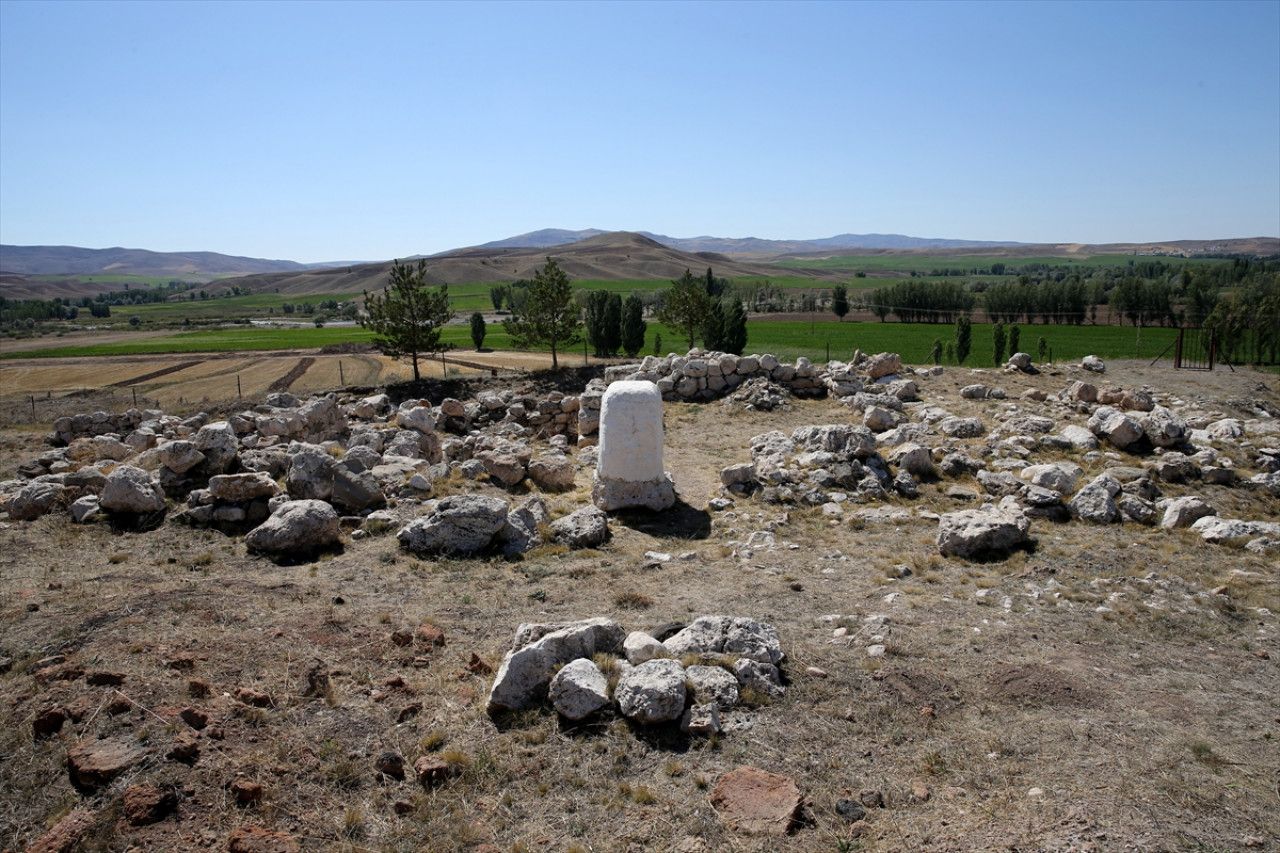Archaeologists will carry out excavations in Kayalipinar, a
3,800-year-old ancient city in the central province of Sivas, hoping to unearth
one of the most important temples belonging to the Hittite civilization.

"There are many monumental structures and administrative buildings here. Those structures show us the importance of this place in both the Old Assyrian and Hittite periods. So there is a lot for a visitor to see in this ancient city," Cigdem Maner, an archaeologist at Koc University in Istanbul, told Anadolu Agency (AA).
Maner, who will also head the excavation team in the ancient city, said Kayalipinar is referred to as "Samuha" in ancient Assyrian and Hittite cuneiform texts, adding that it was once the capital of the Hittites after Hattusa.




 Credit: AA
Credit: AAShe underlined that preliminary preparations for the excavations to be carried out in the Kayalipinar village of the Yildizeli district in Sivas have been completed.
Explaining the historical background of the temple, Maner said: "The cult of the goddess of the night was brought to Samuha from the Cilicia region (southern Anatolia) during the reign of the Hittite King Tuthaliya II, and a temple was built for her."




 Credit: AA
Credit: AA"This temple and cult were later renewed during the reign of King Mursili II, and a temple was built for the goddess Shaushka/Ishtar. Hattusili III had declared Shaushka as his own goddess, while his son Tudhalija IV and the kings after him also continued this cult," she added.
Archaeologists Vuslat Karpe and Andreas Muller-Karpe from Germany's University of Marburg also carried out excavations in Kayalipinar from 2005-2019, she noted, saying the structures unearthed so far are from that period.
Stressing the importance of the excavation works, Maner said: "Cuneiform tablets are also likely to be unearthed. These will tell about the actual historical relations and correspondence at the time, including the literature, religion and political structure of the Hittite civilization ... as well as correspondence of the Hittites with other civilizations."
According to some old texts, the temple has 14 rooms, while the
excavation team currently does not know what they will encounter, she added.
"The most beautiful (artifacts to be unearthed) would be the statue of the
goddess, cult objects, and cuneiform tablets describing rituals."
Source: Anadolu Agency





0 Comments